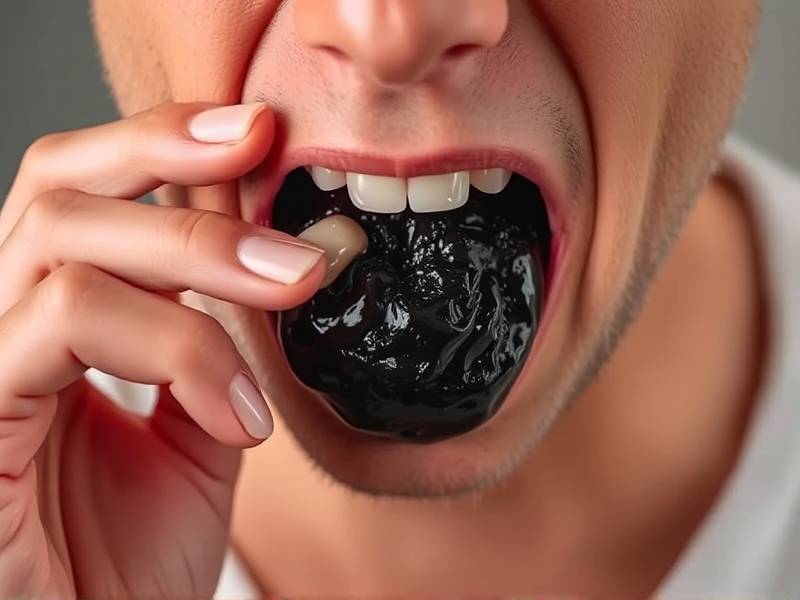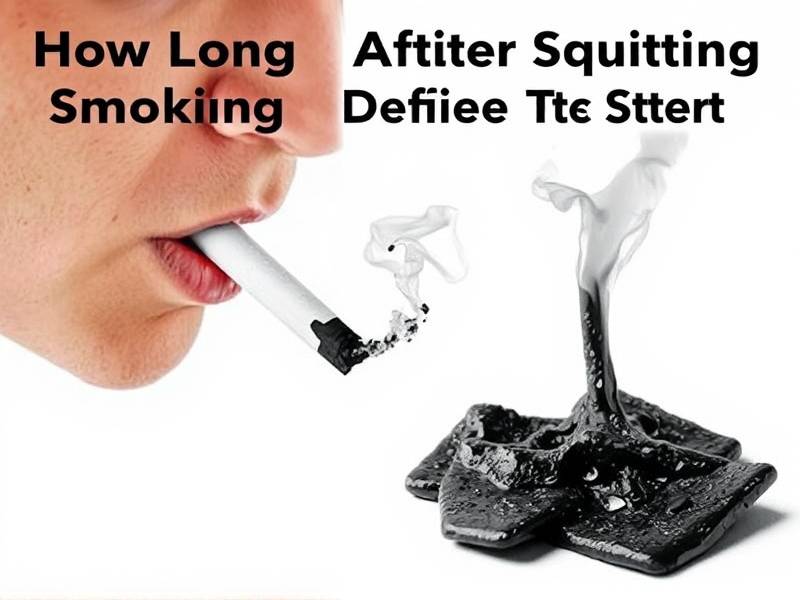How Long After Quitting Smoking Do You Start Coughing Up Black Phlegm?
The Journey to a Healthier Lungs: Understanding the Black Phlegm Cough Post-Quitting Smoking
Introduction: The decision to quit smoking is a significant step towards improving one's health. However, it's not uncommon for individuals to experience various symptoms post-cessation. One such symptom is coughing up black phlegm, which can be concerning but often resolves as the body heals. Let's delve into how long it might take for this to happen and what it signifies.
What Causes Black Phlegm After Quitting Smoking?

-
Tar Removal When you quit smoking, your body begins to expel the accumulated tar and toxins from your lungs. This process can lead to the production of dark-colored phlegm as the tar is dislodged.
-
Inflammation Reduction The inflammation caused by smoking can lead to swelling in the airways. As you stop smoking, this inflammation starts to decrease, which can also result in the production of black phlegm as the body clears out debris.

How Long Does It Take?
1. Immediate Response Some people may start coughing up black phlegm within a few hours or days after quitting smoking. This is often due to immediate changes in the lungs as they begin to heal.
2. Weeks After Quitting For many individuals, coughing up black phlegm becomes more frequent during the first few weeks post-cessation. This phase typically lasts for about 2-3 weeks but can vary from person to person.
3. Months Post-Quitting In some cases, it may take several months for the lungs to completely clear out all traces of tar and other pollutants. During this time, you might still experience episodes of coughing with black phlegm but less frequently than in the initial weeks.
What Should You Do?
-
Stay Hydrated Drinking plenty of water helps thin mucus and makes it easier for your body to expel it.
-
Exercise Regularly Physical activity enhances lung function and aids in clearing out mucus.
-
Avoid Irritants Stay away from secondhand smoke, dust, and other irritants that can exacerbate coughing and mucus production.
-
Seek Medical Advice If you're concerned about your symptoms or if they persist for an extended period, consult with a healthcare professional.
Conclusion: Coughing up black phlegm after quitting smoking is a sign that your body is on its way to recovery from years of tobacco exposure. While it can be unsettling at first, understanding that this phase is temporary can provide comfort and motivation on your journey towards better health. Remember, patience and persistence are key as you navigate this new chapter in your life without cigarettes.
